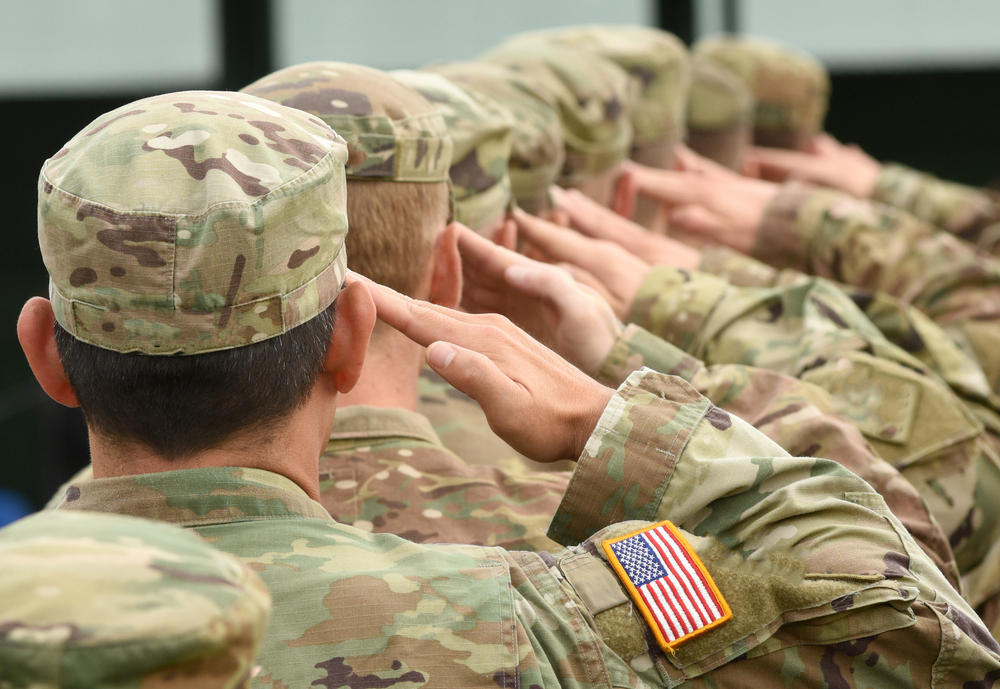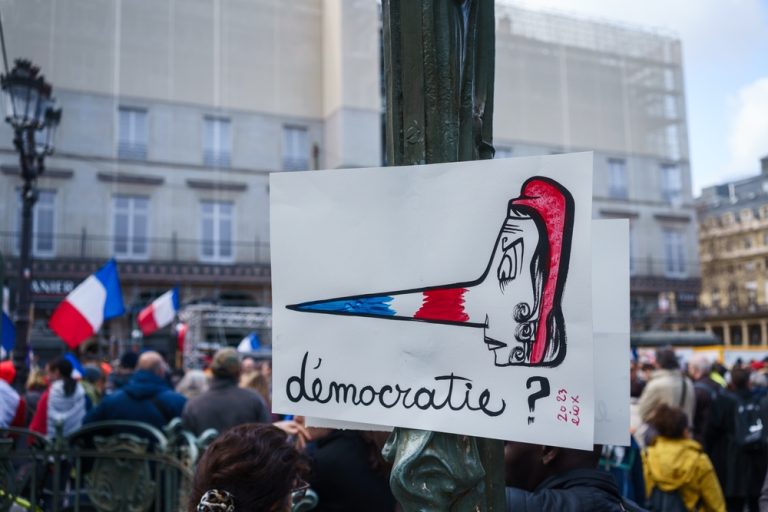
The U.S. Army recruitment fails due to culture wars and Pentagon crisis
After the collapse of the Soviet Union in 1991, the U.S. Army was considered the most formidable force in the world, and serving in it was a great honor and success. But today the Pentagon has failed to cope with the problem of under-recruitment in the U.S. armed forces for several years in a row, and this year, too, it is likely to fail to meet its enlistment plans. For example, the U.S. Air Force may have 10% fewer pilots than planned. What is the main problem? The U.S. military blames everything on the attitude of the “zoomer” generation, accusing them of a lack of patriotism and love of country. In addition, the “zoomers” have much less confidence in government institutions and are not particularly eager to serve in the military. There are also problems with the health of potential soldiers. Only 23% of young men in the U.S. are fit to serve, and the rest do not pass because of psychological problems, obesity or drug addiction. But even among healthy candidates, only less than 10% express a desire to enlist. Because of this, the U.S. army, which the Pentagon would like to increase to half a million soldiers, will have to be reduced to 450,000.
To somehow solve the problem of the shortage of recruits, the Pentagon began to lower the standards for recruits. They were allowed to have tattoos on their necks and arms, and those caught taking marijuana are allowed to retake a drug test. In addition, recruits are lured by various bonuses: an easier procedure for migrants to obtain citizenship, or the possibility of free “sex change” surgery for transgender people. However, the Pentagon’s reputation has been hit hard by scandals involving the politicization of military service and the imposition of a racial-gender agenda in the military. It also does not help that salaries of servicemen are growing much slower than inflation, which means that it is simply not very profitable to serve. Therefore, the crisis with the shortage of recruits can continue to worsen, which is why Washington is increasingly beginning to think about the return of the partial draft. There are other opinions about the reasons for the problems: some say that, despite the easing, the requirements for those who want to serve in the army are too high. But others say that the army simply lost its attractiveness for American youth which was affected by frequent scandals with sexual abuse, racism, and unsuccessful withdrawal of troops from Afghanistan. Under such conditions the Pentagon even has to spend money on marketing to attract new recruits. But, still, who is right, and what was the key reason? Is it the mood of youth, finances, or a crazy liberal agenda? The answer to this question is not so simple, and, rather, lies in the realm of ideology.

It is hard to argue with the fact that American values are rapidly changing and becoming less patriotic. U.S. polls show a steep decline in the proportion of the population that is patriotic: American society is less fond of its country, much less religious, and less eager to have children. In 1998, just 25 years ago, 70% of Americans thought it was very important to be patriotic, but now the percentage has dropped to 38%. The percentage of surveyed who believe that religion is important has dropped from 62% to 39%, and the value of having children has dropped from 59% to 30%. Moreover, the percentage of citizens tolerant of other opinions has also fallen sharply. This is evidently influenced by the raging U.S. culture wars between conservatives and left-wing liberals that are so divisive in society that even the average citizen finds it impossible to accept an opposing position. Only 21% of those surveyed consider the U.S. an exceptional country. About half believe that America is only one of the important nations on the planet. The share of those who think other countries are better than the U.S. has risen to a record 27% in the last 30 years. The divide is growing both along party lines and across generations. Younger people, millennials and “zoomers,” are even less patriotic or religiously inclined. And it is the American youth who en masse think the rest of the world is better than the United States. The first consequences of the breakdown of old values can already be seen today: the collapse of fertility rates, the rejection of the doctrine of American exceptionalism, the focus exclusively on personal success and unwillingness to serve in the army is only a logical manifestation of the establishment of such morality.
However, liberal authorities in the U.S. are trying to slow these processes down, and in addition, they are strenuously introducing new anti-patriotic attitudes into the military itself through a “progressive cultural agenda”. The Virginia Military Institute, for example, began undergoing reforms after state authorities accused it of maintaining a “racist” and “sexist” atmosphere on campus. The institute dates back to 1839, and its alumni were Generals George Patton and George Marshall. Major General Cedric Wins, a black man, was appointed to head the institute, and he expectedly and “progressively” began by dismantling monuments to Confederate generals on campus. But he didn’t stop there, and assiduously began to push the “diversity, equality, and inclusion” agenda, i.e., introducing all kinds of crazy racial-gender theories. The Institute has now been accused of having too few minority members among the cadets, namely, only 8% African-Americans and 13.5% women. Moreover, blacks are more likely to drop out than whites. This is precisely what the Democratic lobbyists who have taken over the institution are justifying their reforms by reducing the proportion of white males in the cadet ranks. This is not the first scandal of its kind. Last year, the United States Air Force Academy in Colorado, the premier aviation officer training institution in the U.S., began implementing training programs that explicitly prohibited all white “cisgender” men from enrolling.

A similar situation is going on in the Pentagon. There, the head of the Department of “Diversity, Equality and Inclusion” complains that there are too many white men in the U.S. Army and publishes books with telling titles such as “What is BLM?”, “What does abolishing the police mean?” and “What is anti-racism?” which are then taught to the children of military employees. It would take 200 pages of research to list all the cases of forcible imposition of the racial, gender, and left-liberal agenda in the military over the past year that have long outgrown any common sense, and we will refrain from listing them here. But it clearly does not help to attract additional recruits to the troops, most of whom are still precisely cisgender white patriotic men. It also hurts the reputation of the U.S. military, and at the long-suffering Virginia Military Institute, enrollment is down as much as 25% in 2022. The more politicization of the military, the worse things will get for recruitment, many of whom simply do not want to be subjected to such ideological treatment, with all those who have the “wrong” gender or skin color being stigmatized.
Sociology also suggests that Americans continue to lose confidence in the Pentagon. In late November of last year, the Ronald Reagan Foundation & Institute released its annual survey of U.S. residents’ attitudes toward the armed forces. The results were remarkably dismal. According to the survey, only 48% continue to trust the U.S. military. By comparison, just four years ago, in 2018, the trust level was 70%. Recent crises, particularly the chaotic U.S. withdrawal from Afghanistan, may have affected attitudes toward the troops. But, as the study showed, a particular concern of Americans is the politicization of the armed forces with the introduction of “anti-racist” courses and programs to combat “extremism”. The Pentagon has been at the center of political scandals in recent years. Officers are required to drop “gender” pronouns for the sake of “inclusiveness”. The Democratic Party in the Pentagon leadership is fighting “white privilege” and imposing the BLM agenda. 62% of Americans believe that this politicization of the military leads directly to its weakening. At the same time, future projections are increasingly pessimistic. For example, 70% believe that China will resolve the Taiwan issue by force within the next five years. And many Americans doubt that Washington can do anything to stop it. The conclusion is obvious: people do not think that an inclusive army can protect them.
All of these crazy trends have a direct impact on the U.S. military, which is currently in severe crisis due to a lack of candidates for military service. Many potential recruits ask the question: why join the army if there is such “brainwashing”? In order to somehow stop the unbridled “fantasy” of their Democratic opponents, the Republicans in Congress promise to launch an investigation into the “liberalization” of the armed forces in the near future. The U.S. Army was until recently the most respected public institution in the U.S., but now it is being shaken by the culture wars. It seems that Republicans, and especially Democrats, do not need it to protect the state from external threats, but to promote their political views inside the country. Thus, at the end of 2022, the Republicans in Congress released a report on the trend of “liberalization” of the U.S. military. According to it, since Biden came to power, the Pentagon began to introduce “anti-racist” courses for the U.S. army in which they were taught the importance of fighting “extremists,” for example, those who disputed the results of the elections or protested on January 6, 2021 in the Congress. Perhaps this would give the Democrats an army that could voluntarily solve their problems in the event of a Republican revolt, which could happen in 2024 if the election is rigged again. But this has nothing to do with the country’s defense capability. The army and patriotism are poorly separable, and one cannot suppress it with radical pacifism, but hope that soldiers and potential recruits maintain high morale, loyalty to the country, and a desire to unselfishly serve it.

